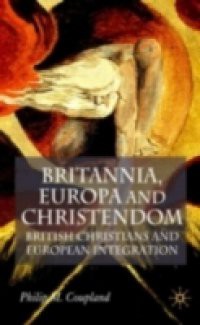Britannia, Europa and Christendom reveals the important, but little known, role of the Christian Churches in debates on the question of Britain and a united Europe. The discussion ranges from the now forgotten British federalist boom of the 1930s and 1940s, through the Cold War and the ups and downs of Britain's fraught post-war relationship with the European Movement, to its belated membership of the European Union. In so doing, it brings to light the elite webs of influence linking Christians and politicians and examines their sometimes problematic nature. Similarly, it shows the complex, ambivalent and conflicting relationships between national identity and Christian universalism, and between Britain's heritage as a world imperial power, a European nation, and its status as the junior partner in the 'transatlantic alliance'. It also comments on the place of Europe's Christian heritage today, at the beginning of what may be a new era of conflict between West and East.

